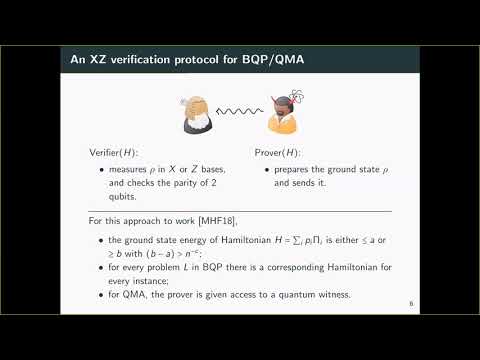CryptoDB
Non-interactive classical verification of quantum computation
| Authors: | |
|---|---|
| Download: | |
| Abstract: | In a recent breakthrough, Mahadev constructed an interactive protocol that enables a purely classical party to delegate any quantum computation to an untrusted quantum prover. We show that this same task can in fact be performed non-interactively (with setup) and in zero-knowledge. Our protocols result from a sequence of significant improvements to the original four-message protocol of Mahadev. We begin by making the first message instance-independent and moving it to an offline setup phase. We then establish a parallel repetition theorem for the resulting three-message protocol, with an asymptotically optimal rate. This, in turn, enables an application of the Fiat-Shamir heuristic, eliminating the second message and giving a non-interactive protocol. Finally, we employ classical non-interactive zero-knowledge (NIZK) arguments and classical fully homomorphic encryption (FHE) to give a zero-knowledge variant of this construction. This yields the first purely classical NIZK argument system for QMA, a quantum analogue of NP. We establish the security of our protocols under standard assumptions in quantum-secure cryptography. Specifically, our protocols are secure in the Quantum Random Oracle Model, under the assumption that Learning with Errors is quantumly hard. The NIZK construction also requires circuit-private FHE. |
Video from TCC 2020
BibTeX
@article{tcc-2020-30604,
title={Non-interactive classical verification of quantum computation},
booktitle={Theory of Cryptography},
publisher={Springer},
author={Gorjan Alagic and Andrew M. Childs and Alex B. Grilo and Shih-Han Hung},
year=2020
}

